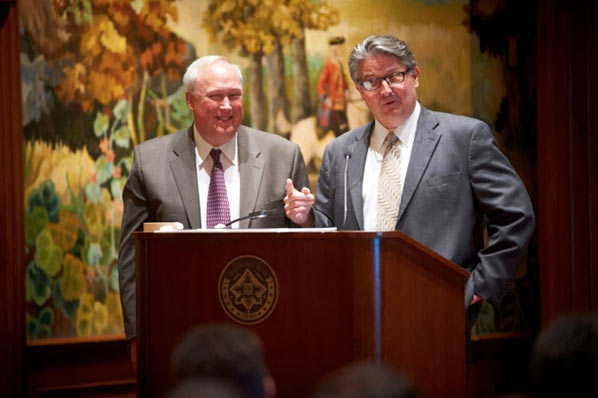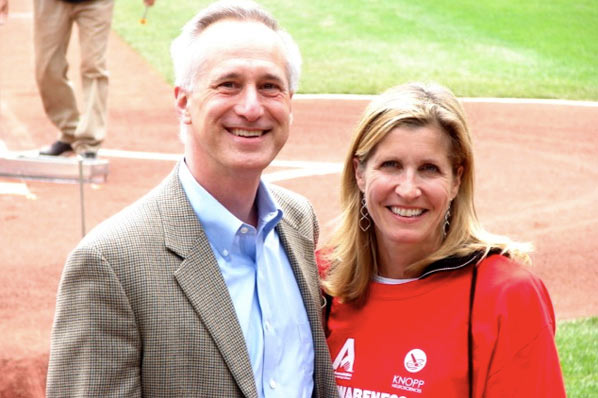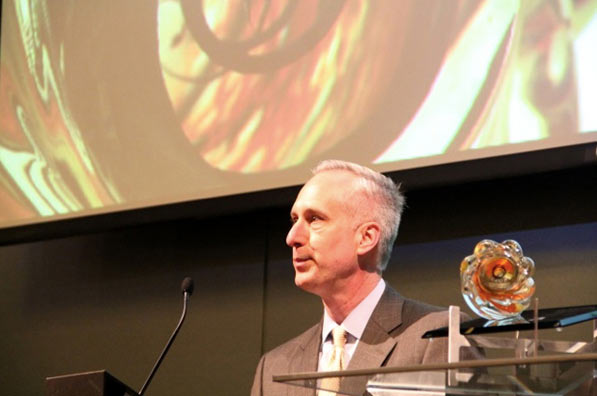Knopp Neurosciences is a Pittsburgh story. The drug development company is a startup gem – from founding, raising money, and executing on its business plan. But wait; Pittsburgh is supposedly not a good place to start a drug company. I hear statements like, “You can’t raise money in Pittsburgh for a drug company,” and “You can’t recruit to Pittsburgh the talent necessary for a drug company.” Oh yeah? Knopp proves that we can.
The beginning. The story of Knopp starts with the company that I co-founded with Tom Petzinger, LaunchCyte, which became interested in a University of Pittsburgh researcher’s work around biomarkers associated with amyotrophic lateral sclerosis – ALS, also known as Lou Gehrig's disease. The fatal neurodegenerative disease, which is difficult to diagnose, is characterized by progressive muscle degeneration. Life expectancy with ALS is three to five years.
First, a diagnostic. At Pitt, Bob Bowser, PhD, had discovered a potential ALS diagnostic. In the spring of 2004, LaunchCyte formed a company around the technology. Leading the charge were Tom Petzinger, LaunchCyte CEO, and Greg Hebrank, MD, a LaunchCyte investor who had been helping us triage opportunities. The company was named after Walter Knopp, a regional grocery store entrepreneur who died from ALS.
Acting as an advisor, Mike Bozik, MD, questioned having a diagnostic for a disease that had no meaningful treatment. Only one drug has been approved for the treatment of ALS, and it typically extends survival by only two to three months. Mike’s point? The value of a diagnostic is meaningful only if there is a clear treatment path. In the case of ALS, a diagnosis meant a death sentence. Mike told Tom and Greg, “If you guys ever run into a drug candidate for ALS, I will help you.” Mike laughs as he recalls, “Literally two weeks later, Tom called and told me about dexpramipexole, a drug candidate at the University of Virginia. That’s now our drug.”
Second, a drug. Like many startups, Knopp had to shift its business model as it morphed from a diagnostics to a drug company. Over the next three years, Knopp took dexpramipexole through Phase 1 and Phase II clinical trials. In August 2010, Knopp licensed the drug for ALS to Biogen Idec, a $4B-a-year pharmaceutical company that focuses on neurological diseases, for $345M in potential payments, plus royalties. With an upfront payment of $20M, a Knopp stock purchase of $60M, and future milestone and royalty payments if the drug is approved, that’s a lot of millions flowing into Pittsburgh.
What it took. Startups need three ingredients to achieve greatness: a solution to a problem, a differentiator, and resources. Knopp embodies the perfect storm of all three:
- Solution to a problem – ALS has been a graveyard of clinical development. If dexpramipexole makes it through Phase III clinical trials, it will be the only viable treatment to a terrible disease.
- Differentiator – Knopp is a treasure trove of intellectual property with numerous patents issued and pending.
- Resources – It takes money and people to build a startup. Knopp has both.
- Money. The funding story is impressive, with a total capital raise of $40M prior to the Biogen deal. A net importer of dollars, Knopp raised roughly 90% of its money from out of town via Boston’s Saturn Capital and NY’s Kramer Capital Partners (now part of Perella Weinberg Partners). Locally, funding came from LaunchCyte and Dr. Hebrank’s network of physicians and supporters in Westmoreland County. Pittsburgh’s Innovation Works was a critical funder in the early days.
- People. The Knopp executive team of Tom Petzinger, Greg Hebrank and Mike Bozik is a triumvirate of talent. Mike came to Pittsburgh in 1989 to finish his residency, and then joined the faculty at Pitt’s Cancer Institute. “It was the experience of advancing a brain tumor vaccine that laid the groundwork for what I wanted to do – discover medicines that make a difference,” he says. Mike then spent six and a half years at Bristol-Meyers Squibb, where he rose to VP of neurology. Mike’s wife, also a physician, was from Pittsburgh and they wanted to finish raising their four children in Pittsburgh. So they boomeranged back to the ‘Burgh. “As I helped with due diligence,” says Mike of his work at Knopp, “I recognized that this drug had some exceptional properties. It was safe and its properties were really promising. That is the pearl of great value. When you find something like that you pursue it with everything you
- have.”
Knopp today. Knopp has grown from 15 to 27 since the Biogen deal, many from elsewhere–half have PhDs. “We have no problem recruiting to Pittsburgh,” says Tom. “The barrier is they see that Knopp is early stage and high risk, like any startup. But when they look under the hood they realize that this molecule has a chance to change the way medicine is practiced.”
Knopp tomorrow. Knopp has one more lap to run to get to the end of the race: to finish Phase III clinical trials, expected by the end of 2012. The Knopp team wanted to leverage what they’ve accomplished by forming a second company that holds the assets of the same drug licensed to Biogen but for use in a novel combination treatment for Parkinson’s. The Knopp team believes they can keep this new co, Knopp Biosciences, growing in Pittsburgh. “There is no reason that we can’t become the Genentech of Pittsburgh around which a biotech community can emerge with tens and maybe hundreds of biotech companies,” declares Mike.
The Knopp story continues. Who says that we can’t do a drug company in Pittsburgh?
Photos:
Greg Hebrank and Tom Petzinger
Mike Bozik and Kathy Knopp
Bozik
Photographs courtesy Babs Carryer



